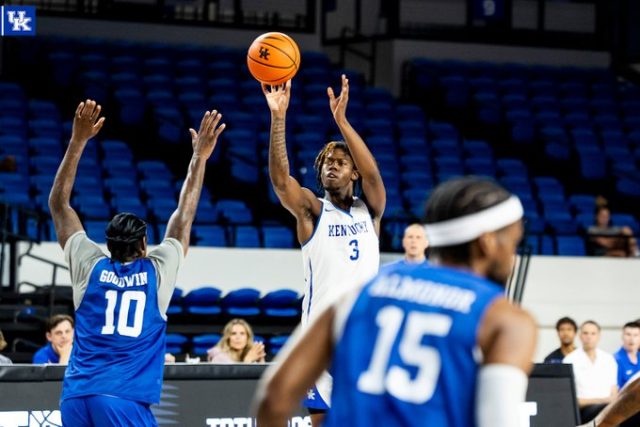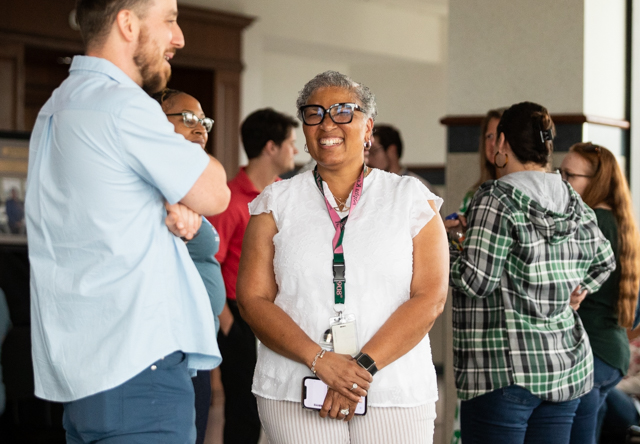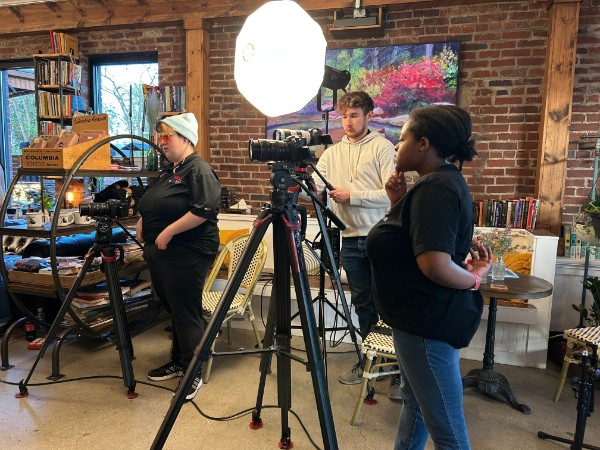Parents, stop micromanaging kids’ relationships with grandparents
Published 12:05 pm Wednesday, June 8, 2016
Most of my memories of my grandma are of her in the kitchen, baking apple dumplings or doing a crossword puzzle at the kitchen table, a cigarette always burning nearby. She was a decent cook, especially when it came to heartier fare, but her apple dumplings were out of this world. They were like home and childhood wrapped together, and each bite tasted a little bit like a hug.
Whenever she visited, I would beg her to bake them. She would balk and moan about having better things to do, but with enough pestering, I could usually convince her to pull out a well-loved baking pan, a rolling pin, and a bag of apples.
Trending
She tried to teach me how to make apple dumplings once while I was in high school. Perhaps she recognized that she was getting on in years and wanted to pass on the recipe. Or maybe she was sick of making them. Whatever the reason, she doled out instructions and I gave it a mediocre effort. Not surprisingly, the dumplings came out dry, with a black crispiness that went beyond charred and could only be labeled as “burned.” She never asked me to bake them again. In fact, she might have put up less of a fight when asked to bake them after my failed attempt.
These are the memories of my grandma that I hold dear. The baking, the crosswords, the togetherness. But if I were to paint a picture of her with these memories alone, the painting would be half-finished. Because there was another side to my grandma, as well.
Even as a little girl, I knew that my grandma wasn’t like other grandmas. She told dirty jokes. She watched “Golden Girls” with me on Saturday nights after I should have been in bed. She told her grandchildren that she turned into a witch on Halloween, and she said it with such conviction that, for years, we believed her.
My grandma was tough and complex – an acquired taste for sure. She grew up dirt poor, overcame an alcohol addiction while raising young children and learned to drive when she was in her 60s. Never one to waste time with niceties or manners, she became less likely to filter her words as she aged. Eventually, her feistiness could no longer be disguised as sarcasm or sassy wit; it started to just seem rude and mean.
I feel honored, and fortunate, to have known all of these sides of my grandma – the apple-dumpling friendly side, as well as the chain-smoking feisty side – particularly when there are such strong stereotypes about when it means to be a “good” grandparent these days. Some might say that my grandma and I had a close bond in spite of her grittier influence, but I would say that it was because of this that we had such a close bond.
Parents like to hold court over our children, claiming sole stake over what goes into their bodies, minds and hearts. In the process we censor their grandparents, or filter the image of them that our children see. What’s more, after a grandparent passes away, we often tuck away their flaws and indiscretions, the disagreements and transgressions that are sprinkled throughout a lifetime.
Trending
But what is the result of our parental watchdog intercession on the grandparent-grandchild bond? What impact does the filtration of our memories of our parents have on our children? And what can we do to help our children bond with their grandparents by letting them see the complete, broken and messy people that we all are?
My grandma had a big personality, for better or worse. It is impossible to separate the woman who baked with me and taught me how to play Rummy from the woman who awoke in the middle of the night to have a smoke, and who once caused me to run from the room in tears after her “brutally honest” advice about my frizzy hair and teen acne. She was gregarious and funny and amusing, and though she wasn’t the doting kind of grandmother, in her own way, she was present and attentive. She pulled you into her world, making no apologies for what her world looked like, and in doing so she etched herself into your world as well. And perhaps one of the primary reasons we had this firmly etched bond was because my parents simply got the heck out of the way.
My parents did not supervise our interactions; rather, they were often off doing their own thing. There was no hovering, no reprimanding my grandma for telling me dirty jokes, and certainly no admonishment for feeding me one too many apple dumplings right before dinner. Instead, my parents let the relationship grow and shape itself independently. For that I am eternally grateful.
When my family talks about my grandma, most of the conversations focus on the good. Her baking. The laughter. The funny anecdotes. But on a few rare and special occasions someone – one of my parents, an aunt or uncle, or maybe a cousin – will tell one of the unfiltered stories filled with blemishes and hidden gems, and that’s when it feels like my grandma is actually sitting next to me, blowing smoke into the air. This is the woman that I knew, not some polished version.
After that failed attempt to make apple dumplings in high school, I never made them again. Until a few months ago, that is. Armed with a fridge full of apples and the recipe from my grandma’s original cookbook, my younger son and I set out to give the beloved dessert a second try.
We measured and stirred, cut and cored. I muttered a few curse words while coring the apples and, at the end of it, our kitchen looked like a flour mill had exploded. The whole process was a bit more stressful than I would have liked, but when I pulled the perfectly browned pastries from the oven, the effort seemed worth it. In fact, given my grandma’s penchant for swearing and her indifference toward cleanliness, the experience seemed to be the embodiment of everything she was – messy, attentive, hard-working, brash and filled with a sticky kind of affection.
And when I took a bite, I was pleased to learn that my grandma’s apple dumplings still taste like a hug, carrying just the faintest scent of cigarette smoke.
– – –
A lawyer-turned-writer, Christine Organ is the author of “Open Boxes: the gifts of living a full and connected life.” She writes at www.christineorgan.com and you can also find her on Facebook and Twitter.
grandparents-essay







